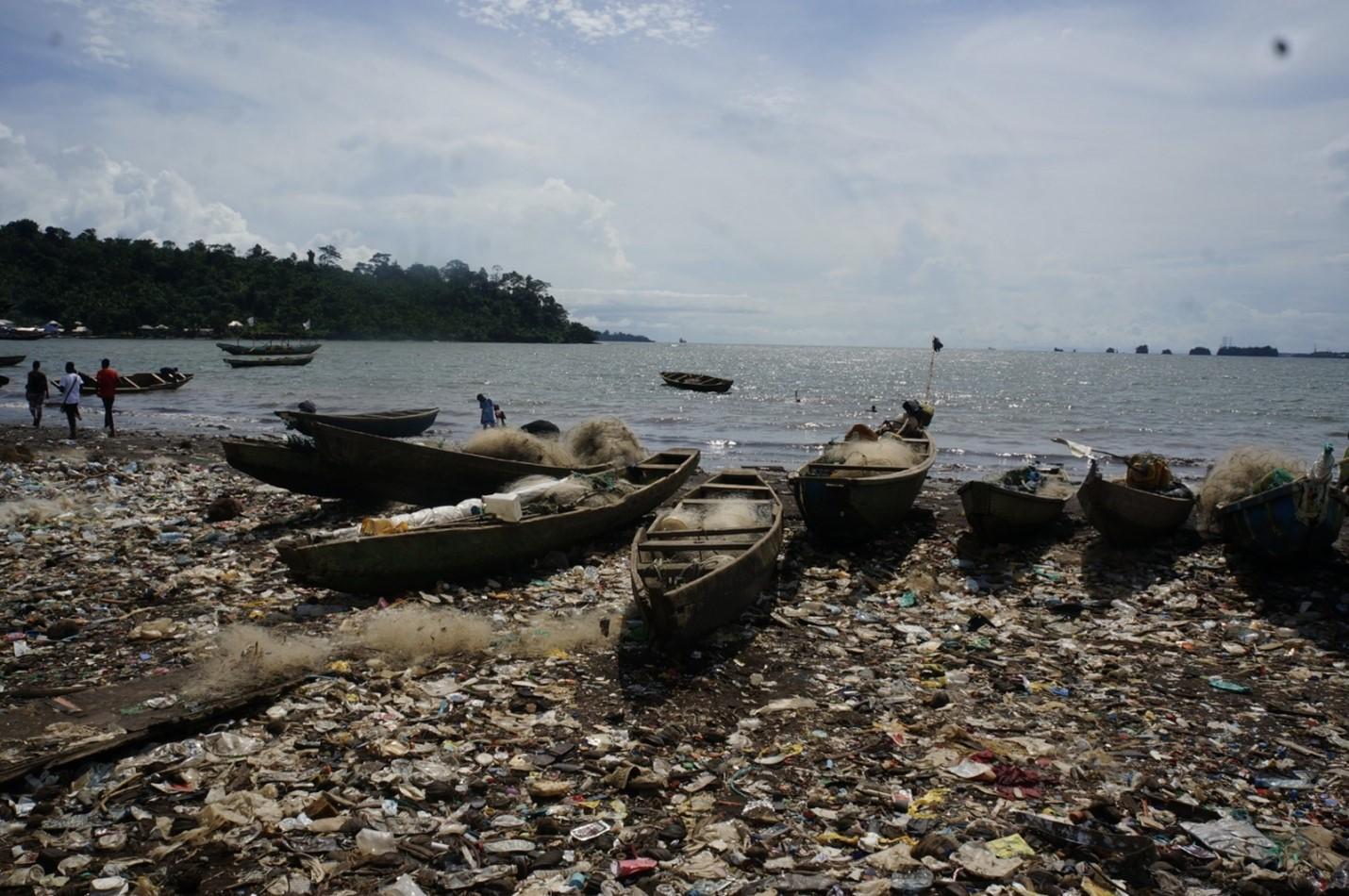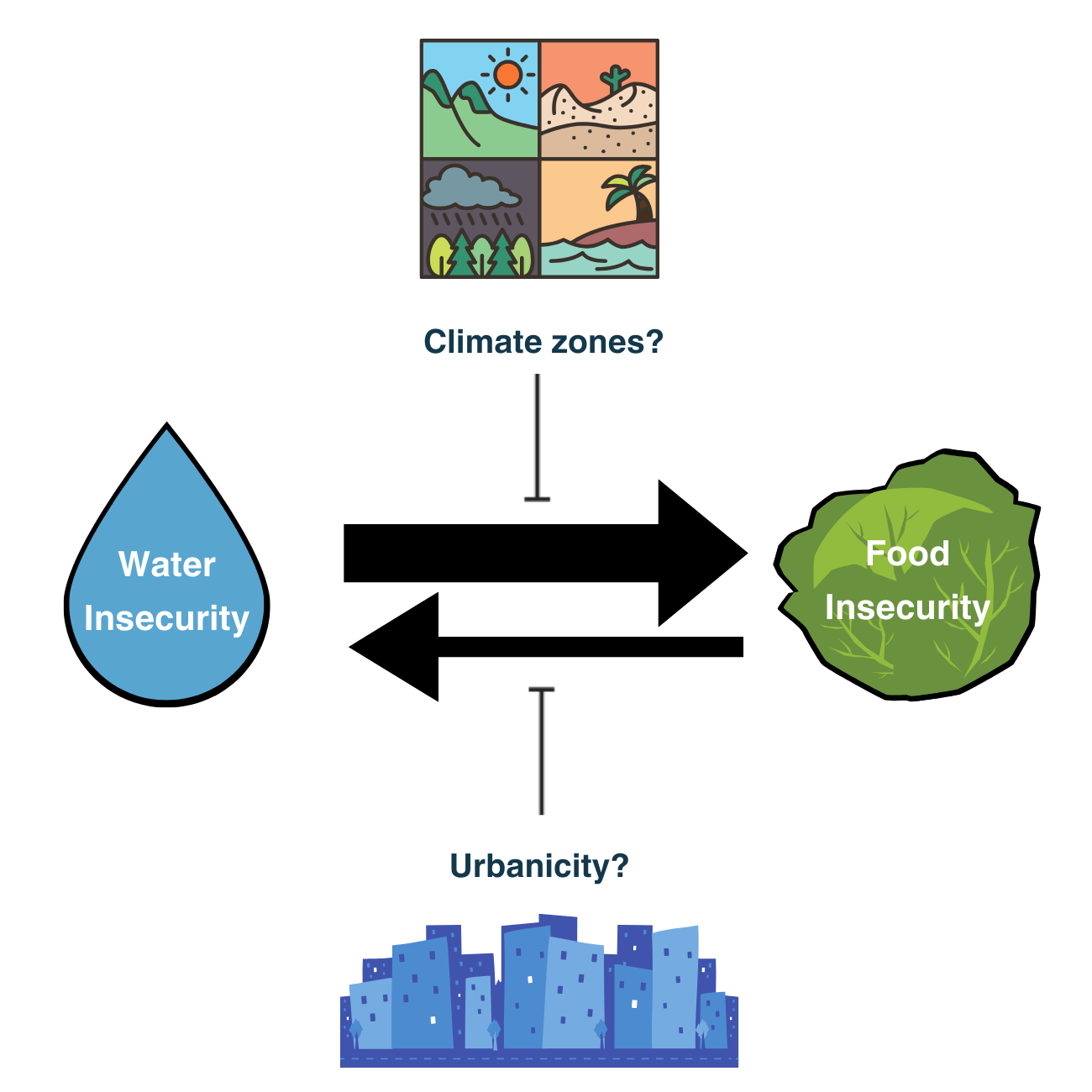We are facing a triple planetary crisis of climate change, biodiversity loss and pollution. Food systems are responsible for a third of greenhouse gas emissions and are the primary cause of biodiversity loss. Food systems are also driving staggering amounts of plastic pollution. The agricultural sector uses 6.5 million tonnes of single-use plastic film for growing crops every year and food packaging accounts for 16% of all plastic produced.
The problem with food system plastics is not just plastic pollution. Finite natural resources, mostly fossil fuels, are used to produce the raw materials and energy required for producing, transporting, and disposing of the plastics. Emissions from the plastic life cycle include greenhouse gases from raw material extraction and incineration, and toxic chemicals released during manufacture and leached from landfill.
One way of accounting for these impacts is by doing a Life Cycle Assessment (LCA). This is an environmental impact assessment method that aggregates all the resources used and emissions generated throughout plastic life cycles and estimates the subsequent impacts on the environment and on human health.
In our new paper, we systematically reviewed LCA studies of common problematic plastics and using a novel meta-analysis approach we explored how increasing recycling and reuse might not only reduce pollution, but also impact global health.
Key findings included:
- A day of healthy life could be saved for every tonne of plastics recycled instead of landfilled or incinerated
- Reusable plastics could reduce health risks compared to single use plastics, but only if we use them on average more than 30 times
- We need Life Cycle Assessments from low- and middle-income countries to provide more representative global health impact assessments
Human health is a cornerstone of sustainability, but quantifying effects linked to waste reduction initiatives and circular economies remains a major methodological challenge. With negotiations for a global plastics treaty to end plastic pollution in full swing, bridging this data deficit has never been more critical to ensuring a levelling up for health considerations in high-level policy for sustainability. Though many data gaps and uncertainties remain, LCA holds unique and important opportunities for future global health research.
What can Life Cycle Assessment tell us about global health?
To generate evidence for the effect that plastics have on health via an epidemiological approach, we would usually start by selecting a human population. Health outcomes would then be measured and analysed in relation to differences in exposure to plastics. Given that this material is now ubiquitous in society and in the environment, particularly in the form of microplastics, finding a population group that is not exposed to plastic is becoming a sadly fading possibility.
In LCA, the analysis begins in reverse, we start instead with the plastic, measuring (or estimating) all the resources used and the emissions generated throughout the processes used to produce, transport, and dispose of the material. This inventory of substances can then be translated to environmental impacts through existing models, and to subsequent health impacts using characterisation factors (these factors provide the equivalent health impacts for every unit of emissions or environmental impacts) derived from epidemiological evidence.
The health impacts in LCA are estimated in Disability-Adjusted Life Years (DALYs). DALYs describe the years of healthy life lost due to premature death or due to living with ill-health and disability; one DALY represents the loss of the equivalent of one year of full health. In LCA, DALYs represent healthy life lost due to death and disease from increased risk of cancers, respiratory diseases, diarrhoeal disease, malnutrition and other health impacts caused by climate change, ozone formation and depletion, ionising radiation, air pollution, toxic chemical pollution of land and water scarcity.
The benefits of using LCA for health analyses include its uniquely holistic approach to impact assessment across the full life cycle of plastic and multiple environmental health pathways and health outcomes. These impacts can be calculated in unison with environmental and cost estimates for a comprehensive and coherent analysis of waste reduction initiatives that put health on an equal footing with other sustainability concerns, which have tended to be the focus of most LCA studies.
What can we do to build on Life Cycle Assessment for global health research?
There are still many limitations of LCA for health research. These models are inherently simplified imitations of reality that estimate cumulative impacts over time, most commonly a 100-year timeframe, with high levels of uncertainty. Whilst the methods are based on the best available evidence, the data is extrapolated, and estimated impacts can vary by entire orders of magnitude depending on the model used. Real changes in systems and society would undoubtedly challenge the accuracy of LCA health estimates and can be difficult to account for in current models.
Whilst LCA can account for multiple health outcomes at once, there are still several gaps that should be prioritised for future research and methods development. For example, though new methods have been developed in LCA to estimate microplastics and plastic leakage throughout plastic life cycles, models to calculate onwards health effects have yet to emerge. Similarly, the effect of occupational or consumer contact with plastic additives is still missing from LCA methods.
Our review of food sector consumer plastics found that LCAs of plastic systems in low- and middle-income countries (LMICs) are critically needed. These models will better reflect the realities of different waste management systems and subsequent health impacts. For example, most high-income countries have tightly regulated waste management including industrial incineration and regulated landfill sites, which limits local emissions and leaching of chemicals. However, these countries also still rely heavily on exporting waste to lower-income countries, with no extended accountability for its management or subsequent health impacts. The prevalence of open burning of plastics and unmanaged dumpsites in LMICs is much more common, due to lack of infrastructure and an overburdening of existing waste management systems. These practices have a much greater impact on health, with no emissions control, greenhouse gases and toxic substances are released into the air and groundwater, contributing to health risks of climate change, respiratory diseases and human toxicity.
LCA is a hugely exciting field of research that is rapidly developing advanced methods for accounting for impacts over time and space, and demonstrating an expanding range of pathways for human health. By engaging more with LCA, the global health community can help to develop these methods even further. In the race to assess the health impacts of plastics and waste reduction strategies, building on the LCA framework will add a new and critical string to the methodological bow of global health research.






